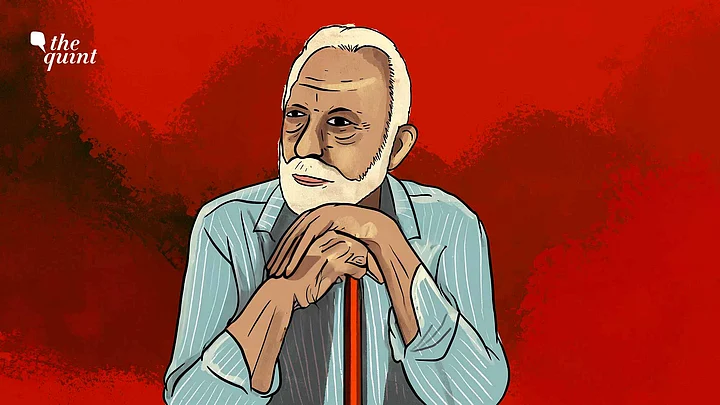The central government’s decision to bring the elderly aged 70 and above under the ambit of a government-funded healthcare insurance scheme is a first step in addressing a long list of due actions to make elderly care affordable in the country. As India is poised to have a very large population of elders in the coming years, there is a need to re-align the healthcare system to respond to the needs of the elderly.
Estimates suggest that the current elderly population of 153 million (aged 60 and above) will reach 347 million by 2050. This means that the portion of elderly in the Indian population will double from 10 per cent to 20 per cent by then, resulting in a significant demographic shift.
The story is more complex than these numbers. The rise in the elderly population means there will be a shift in the disease burden as more people will face complex and chronic health conditions making them vulnerable, to which they will seek more support from their families, institutions, hospitals, and the society at large.
Here is some data to look at what lies ahead.
The health indicators, according to the last Longitudinal Ageing Study in India (LASI), suggest that every fourth Indian over the age of 60 and every fifth Indian over the age of 45 is reported to have poor health. Approximately 75 percent of the elderly have one or more chronic diseases, about 40 percent of them have one or more disabilities, and about one in four have multiple morbidities. Only around 20 percent have social protection in terms of health insurance and pension covers only around 22 percent of them.
A recent position paper by Niti Aayog on senior care reforms in India elderly care mentions that over the years, India’s healthcare programmes and policies have prioritised issues like disease control, maternal and child health, and population stabilisation for many years and as a cost of that, long-term palliative care and senior care have received little attention.
This suggests that India needs to develop and evaluate elderly-oriented healthcare delivery and financial models to support the distinct and unique requirements of the elderly.
What Elderly Care Should Look Like?
Appropriate elderly healthcare should provide a complete set of services to manage both long-term and sudden health issues. To help older people stay independent, it should offer rehabilitation services, and provide helpful devices and training on how to use them. The model needs to include long-term care and end-of-life care when needed.
Providing these services will require trained healthcare workers and caregivers who better understand the needs of older patients. Mental health services should be an integral part, with a focus on increasing health awareness among older people and their families.
With increasing numbers of old people living alone, 24-hour access to emergency facilities, lesser response time, and support like public geriatric ambulances are imperative.
Lastly, the model should support ongoing research to improve care for the elderly which is specific to the Indian context.
Current Challenges
The elderly care market is fragmented. While multiple private providers have recently started extending services in this space, they work in silos and provide care through nursing agencies, physiotherapists, and medical suppliers. Most providers are small in scale or unorganised, extending only a sub-optimal quality of care within top cities.
According to the government report, less than 500 districts had old-age homes in 2021, creating a gap between the infrastructure required to house the elderly who need them. Moreover, the existing housing structures are not ready to cater to the needs of elderly people.
There is an acute shortage of home-health care workforce and home-based services because there are very few clinicians to meet the medical needs of the homebound elderly.
The best models to provide long-term palliative care and senior care are still evolving while geriatric care is still a relatively new area and is mainly restricted to cities. More than 70 percent of the elderly live in rural areas.
The mean out-of-pocket expenditure in private health facilities is just above Rs 30,000 and health-related expenses are the most common cause of indebtedness in urban India. Insurance products for the elderly come with limited coverage options, high premiums, and challenges in claims.
More Women at Risk
According to LASI, there is a higher percentage of women in India’s elderly population. If we dig deeper into the family patterns, 28 lakh women live alone in rural areas, eight lakh women live alone in urban areas, and 54 percent of women over 60 years were widowed compared to 16 percent of men.
They face a higher risk of social exclusion due to a lack of support from institutions, thus impacting their health. Poor physical health and the stigma around widowhood in the Indian context increase the vulnerability of elderly women. Moreover, only 10 percent of senior females in rural areas and 11 percent in urban areas are financially independent.
Going Forward
Public and private enterprises need to innovate to provide appropriate elderly care and financial safety nets. While Ayushman Bharat will cover hospitalisation charges in many hospitals, providing proper elderly care is complex.
As noted by Niti Aayog, the health profile of a nation changes along with changes in the population. The rising burden of noncommunicable diseases, scarcity of long-term senior care plans, deficient medical infrastructure, lack of accessible and affordable healthcare, and regional and social inequalities in healthcare are both challenges and opportunities for the country.
It is, therefore, time to make our healthcare system responsive and provide solutions for the ageing population.
(Amanjeet Singh works at the Max Institute of Healthcare Management, Indian School of Business.)
(At The Quint, we question everything. Play an active role in shaping our journalism by becoming a member today.)
